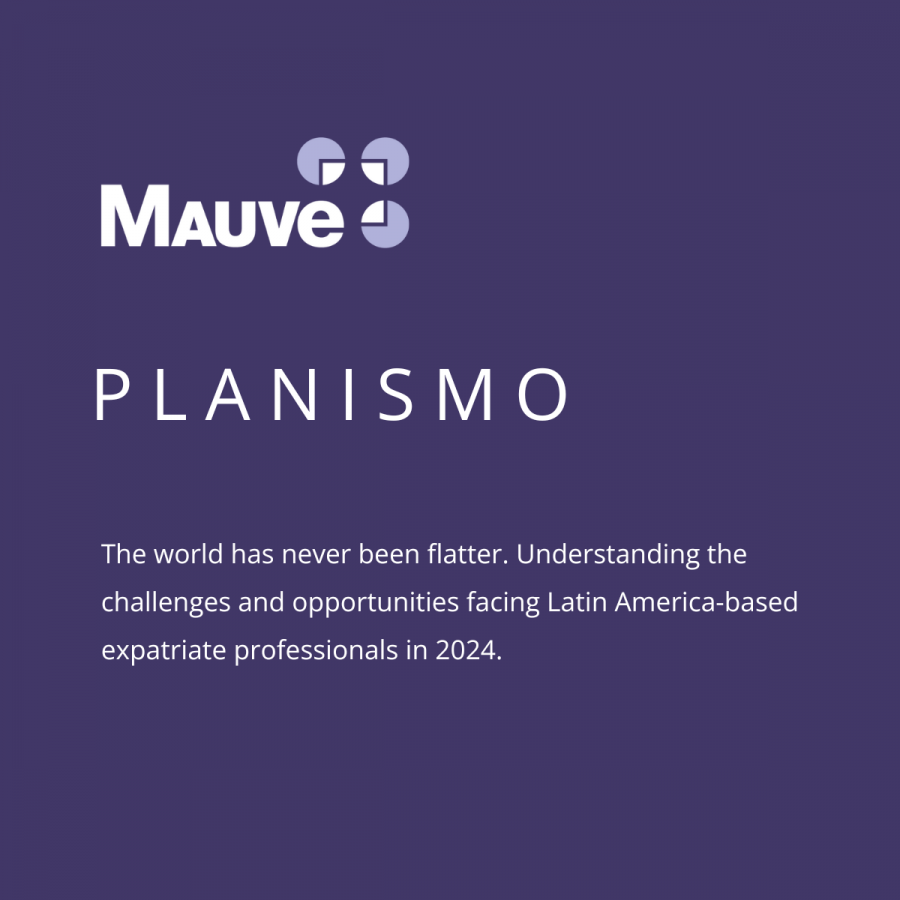New Mauve report examines the expat experience in LatAm
Mauve and LatAm Intersect launch new report.

Together with LatAm Intersect PR, Mauve Group has today launched a new report examining the experience of expatriate workers in Latin America.
The report is titled Planismo, a reference to the Uruguayan art movement of the same name – referring to the ‘flattening’ of traditional boundaries, resulting in the intersection of different planes. In this context, it is employed to refer to the breaking down of boundaries and increasing interconnectedness of today’s working world, as a result of global mobility.
As Planismo explains, “This new era allows for increased innovation and flexibility, particularly in the ‘nearshoring’ Latin American corporate landscape.”
Methodology
The survey interviewed 600 expatriate professionals working in three Latin American countries: 200 in Brazil, 200 in Colombia, and 200 in Mexico. The research was carried out in May and June of 2024.
All respondents had been living in their country of residence for six months or more and were in formal employment at the time of the interview. The participants originated from Europe, Latin America, the USA and Canada, and Asia. All gender and age groups were represented equally. The survey was conducted between May 10th and June 10th 2024, in the form of an online questionnaire.
High hopes and hard landings
The report finds that, despite being satisfied with remuneration packages, professionals moving to Latin America for work face ‘quality of life’ challenges beyond the workplace.
Navigating local tax and bureaucracy was the main challenge identified, with over 90% of respondents ‘not at all aware’ of the local tax implications, processes, and regulations of their new country of residency prior to moving. As a result, fewer than 1 in 10 respondents felt that they were comfortable and productive ‘immediately’.
The report highlights that while expats in LatAm are satisfied with their remuneration, few are prepared for the local bureaucracy upon arrival. Fewer than 1 in 10 felt comfortable and productive immediately.
Despite this, respondents from the USA and Canada were most likely to say that their personal quality of life is ‘much better’ in their new country of residence.
Career growth opportunities drive professional relocations to LatAm
Respondents from all surveyed regions moved primarily for company offers and new posts, showing that opportunities for career development is the main driver for relocation to Latin America.
However, more women than men across all surveyed regions were over four times more likely to have moved abroad due to a partner’s job offer.
Looking towards the future
22.5% of European expats expressed their intention to stay in their current Latin American country, making them most likely to remain. Meanwhile, just 11.7% of expats in the US and Canada intend to stay in the countries to which they’ve relocated. 0% of respondents from Asia intend to remain in Latin America permanently.
The report finds that in an age of Planismo, the strategic geographic location of a company’s employees offers a vital new window of opportunity. The survey confirms that professionals are highly motivated to travel for work and, if correctly supported and incentivised, stay for five years or more in their new country of residence.
Employers must ensure that professionals who are willing to relocate find more than enough support from the start of their journey all the way through. This means preparation for new systems of work, bureaucracy, and culture. By ensuring a holistic approach that recognises that quality of life is both a professional and personal matter, companies can succeed in their planned expansions and provide a wealth of experience and stimulating challenges for the professionals who help take them there.
The report is now available for you to read. Complete the form below to download your copy today!


Join Mauve Group as a Global EOR Payroll Assistant
Join our global EOR team, today.


Mauve Group wins 'HR Tech Provider of the Year' at the Personnel Today Awards 2025
Discover how and why Mauve Group secured the 'HR Tech Provider of the Year' award at the Personnel Today Awards 2025.
